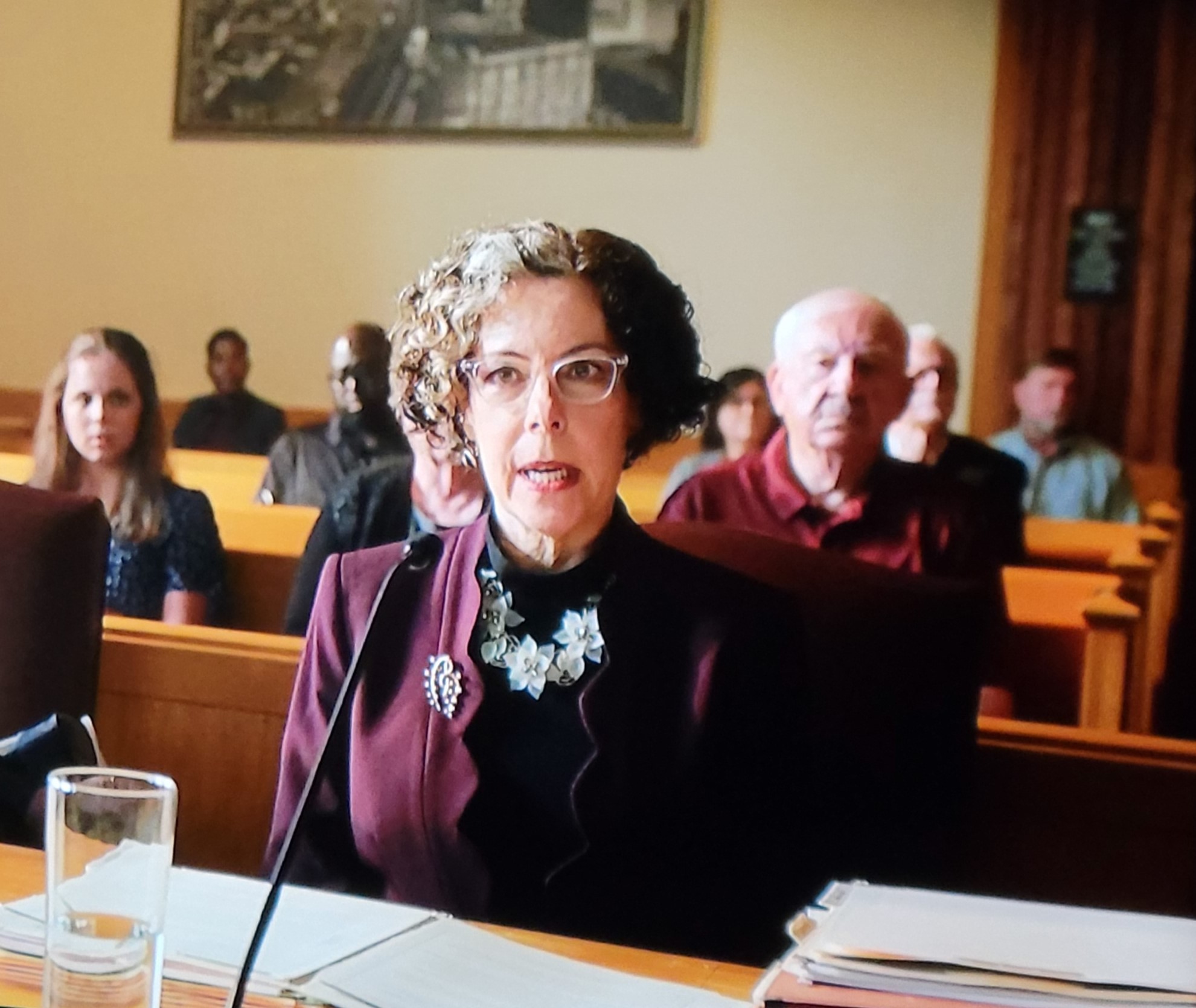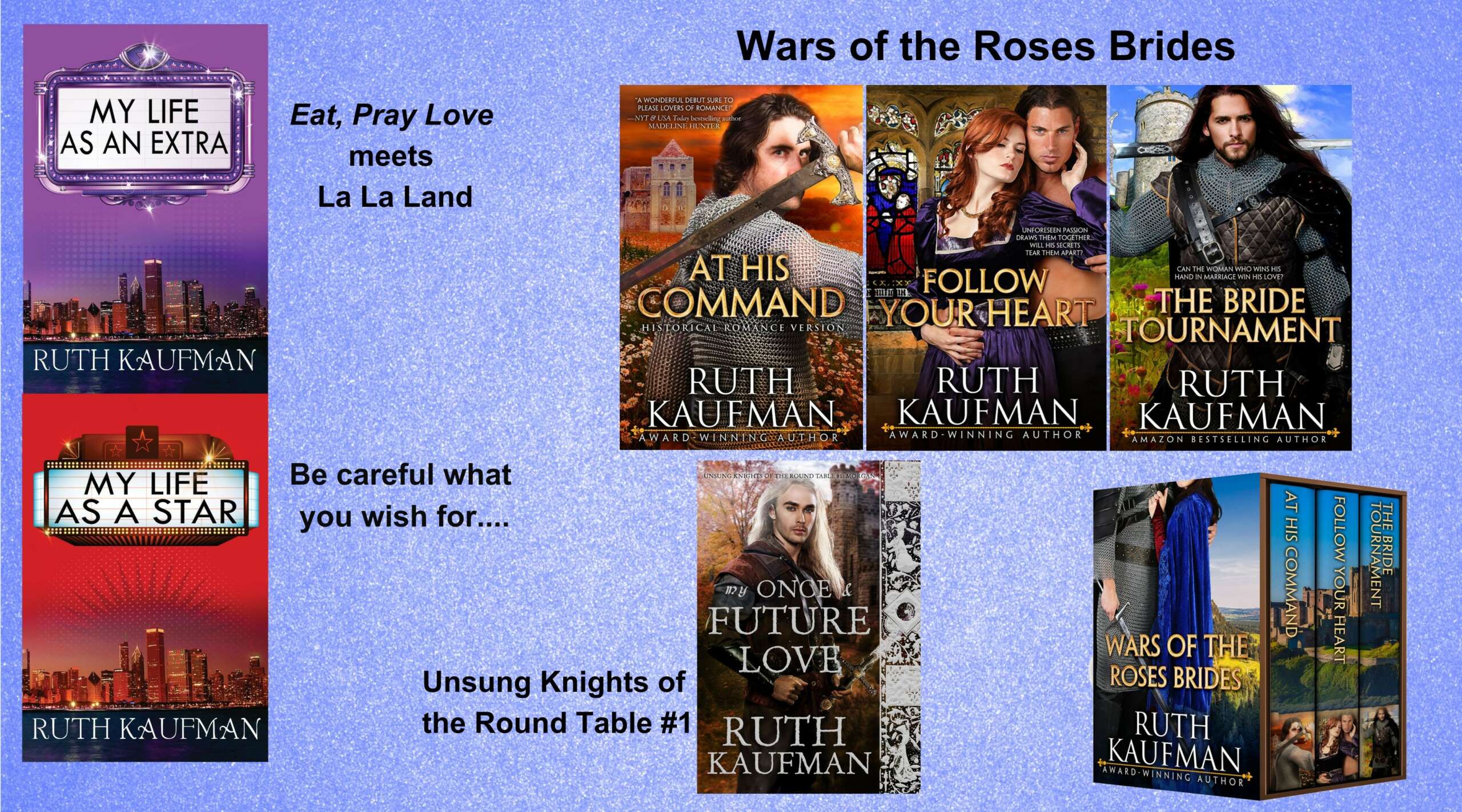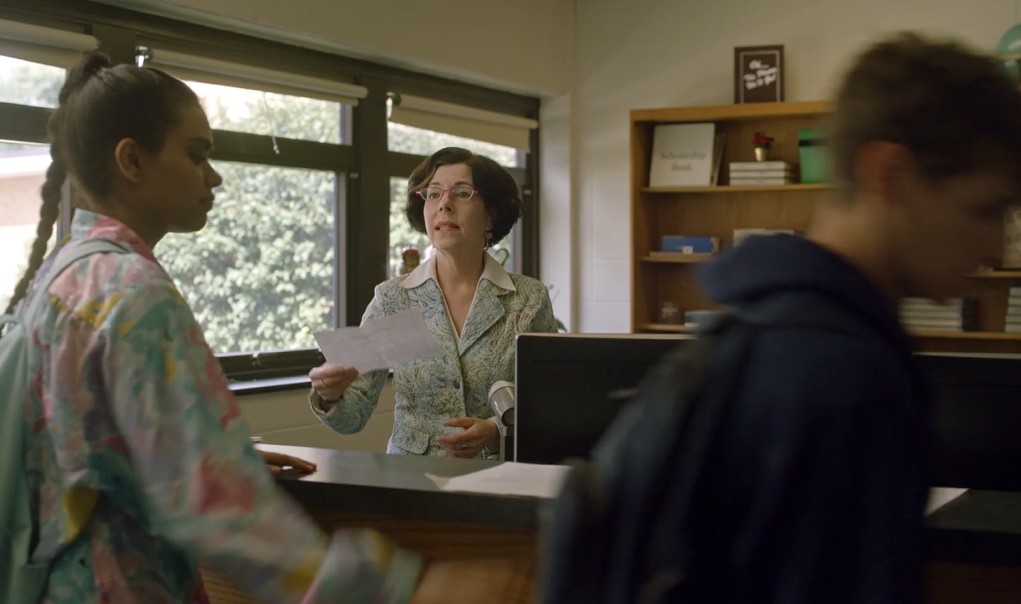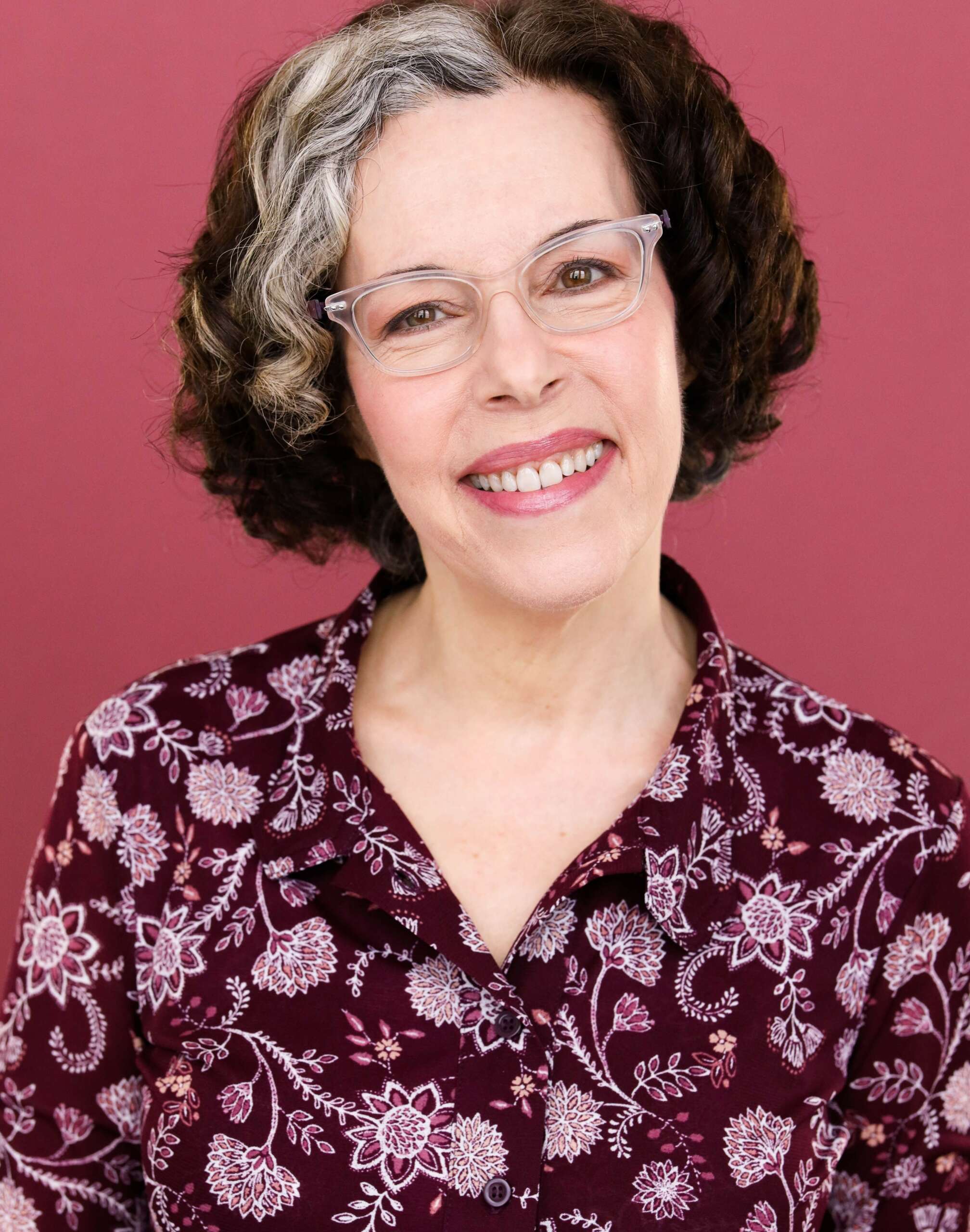Alright – so today we’ve got the honor of introducing you to Ruth Kaufman. We think you’ll enjoy our conversation, we’ve shared it below.
Ruth, thanks for taking the time to share your stories with us today Can you open up about a risk you’ve taken – what it was like taking that risk, why you took the risk and how it turned out?
Despite wanting to be an actor since Kindergarten and a writer before the age of 12, I wasn’t confident enough in my abilities or the chances of financial security to choose them as careers. So after graduate school, I briefly worked at a radio station in ad sales (while also writing and voicing commercials), and then had two corporate America sales, marketing and training jobs: three years in radio ratings (requiring extensive travel) and 13 years of working with large law firms (requiring occasional travel).
I pursued my dreams on the side by taking improv and on-camera acting classes and spending many, many evenings and weekends writing novels (perhaps to the detriment of my social life). Over the years, I performed with four improv teams, got an on-camera agent and booked a few things that fit into my day job schedule. I did a lot of extra work because taking a day of vacation was easier than making time for an audition, callback, wardrobe fitting and the gig. Freelance articles brought in my first income as a writer.
My first TV commercial, filmed in Indianapolis before 2005, was also my first job as a principal talent joined by extras. While I was on set, a bench in a park, a homeless man wandered by. He pushed a wire cart with one item rolling around the bottom: a blue, stainless steel coffee mug with the logo of the company I worked for on it! I had that same mug at home. Was that a sign of what might happen to me if I quit my job?
Meanwhile, I completed 6 novels that I couldn’t sell despite dozens of requested submissions, winning a few contests and eventually getting a name agent. In 2005, my third novel was a finalist in an American Idol type contest called American Title. After multiple rounds of online voting, the winner would receive a publishing contract. Despite extensive canvassing for votes, even asking strangers in the grocery, my book placed second.
The good of having a real “day job:” the security of a steady income and 4 weeks of paid vacation as I slowly added credits to my acting resume. I learned how to handle rejection at work (when a potential client wasn’t interested in meeting with me or decided to drop my products in favor of the competitor), after auditions (when I didn’t get a callback or the booking), and after all of those book submissions. The not as good: missing opportunities to audition and book projects because of it. I was too much of a goodie two shoes to call in sick, even though my main clients knew about my dreams and said it was ok if I cancelled a standing appointment now and again.
Finally, in my mid-40s, after laying what I hoped was enough foundation for an acting and writing career, I decided “someday is now,” and quit my day job. I knew I’d miss the steady income and great benefits, but the time had come to commit to my dreams of acting and writing.
One reason is that acting takes a lot of stamina, including getting to and from locations, long days on set and enduring cold or hot weather. There was no way to know if I’d have the energy or physical ability to sustain acting jobs in my “golden years.”
Perhaps I’d already waited too long, because I soon learned there were fewer roles for older women. And that 50s-early 60s can be an odd age range, because some view you as too old to be a mother, yet also see you as still too young to fit the perception of a grandmother or senior. On the other hand, the pool of older actors could be smaller.
After taking the leap and leaving my job in October 2005, I took voiceover classes, made my first commercial demo and my narration demo shortly thereafter. Fortunately my on-camera agent accepted me for VO. I was able to add a couple of other agents (in Chicago you can be multi-listed). Voiceover jobs drifted in after I learned how to set up my home recording space and edit audio so I could submit auditions and jobs from home.
I had a website designed and started a blog entitled “Gainfully Unemployed” because people couldn’t understand how I filled my days and seemed to assume I was available at a moment’s notice. On days I wasn’t as busy acting or preparing for opportunities, I continued writing novels.
My law degree and corporate experience proved helpful because actors are actually entrepreneurs. I could use my sales and marketing skills to manage my business and market to potential clients. I also had 16 years of client service experience to help work with them.
Focusing on acting and writing wasn’t all gravy. “Famine” periods, when I wasn’t getting auditions or booking jobs, made me wonder if I should pursue another “real” job, or if I wasn’t good enough to book multiple projects. And my manuscripts continued to rack up rejections, despite getting another name agent and racking up more contest accolades.
Nineteen years later, I’ve amassed dozens of film and TV credits, plus a bunch of commercials, industrials, many improv gigs and thousands of voiceovers. The risk pays off every time I book something. I confess to still having occasional doubts on holidays when salaried people are getting paid to take time off and if there’s a drought in auditions and bookings. I choose to take fewer vacations so I don’t have to tell my agent I’m not available when opportunities pop up last minute or something I want to audition for wants weeks of availability. The last time I took a major vacation for a week and two weekends, both my companion and I lost out on major opportunities.
Even if you’re not comfortable quitting your day job, maybe you, too, can decide “someday is now,” and take at least one step a week toward your dreams.

Ruth, before we move on to more of these sorts of questions, can you take some time to bring our readers up to speed on you and what you do?
I knew I wanted to be an actor when I got my first laugh during a Kindergarten Christmas play. I wanted to be a writer, too, and typed my first “novel” before turning 12. But my father kept insisting that I get a “real job,” and I wasn’t brave enough to focus on my dreams as majors or careers.
I did plays and musicals throughout grade school, high school, and college, and sang in choirs. I also worked at my high school and college radio stations. I made time to perform while getting my law degree and Master’s in Radio/TV/Film, including starring in a couple of the law school’s satirical musical reviews, being the female anchor of a cable TV comedy news show and singing in a symphony chorus. During my second year, our National Appellate Team placed second nationwide out of 150 schools, and for the final round I got to argue in front of a nine-judge panel including Supreme Court Justice Sandra Day O’Connor. For most of my third year, I interned at a public TV/Radio station and was a part-time classical radio host. An early great acting day was finishing my radio shift and going across the hall to be one of the hosts for the TV station’s annual fundraising auction.
Fearing failure and my father’s “I told you so,” I mostly worked in sales, training and marketing after graduate school, while doing as much acting and writing as I could fit in after hours, on vacation days and weekends. I finally decided to quit my day job in 2005.
Many years later, I’m an on-camera and voice actor and improviser with credits including Marvel Studios’ She-Hulk: Attorney at Law on Disney+, dozens of feature and short films and web series, a bunch of commercials, some industrials, many improv performances and thousands of voiceovers. Accolades include a best actress nomination from the Midwest Film Festival.
I’ve written dozens of freelance articles, self-published six novels, produced an audio book for one and voiced the female characters. My medieval romance trilogy reached #1 on Amazon in the US and two other countries. A contemporary rom com won Top Comedy, 3rd Annual Launch Pad Prose Competition and is currently in the top 10% of discoverable projects on Coverfly. A six-episode web series I was head writer for is available on YouTube. I played three roles in a short that I wrote, directed and filmed myself during COVID that got into a couple of festivals. And I sold my first feature film screenplay last year.
Other hats include storyteller, workshop presenter (topics include understanding contracts and sales skills for actors and/or authors) and coach for those who want to get into on-camera or voice acting or seek ways to grow their acting businesses.
My legal background and extensive corporate America experience set me apart when offering workshops and coaching for actors. Actors are also entrepreneurs, and many could benefit by learning more about how to run their businesses. I can help them save time, effort and probably some frustration by covering topics including goal setting, essential sales and marketing skills, how to work with different clients (filmmakers, producers, agents, casting directors, etc.) and getting a sense of what to look for and avoid in contracts.

What can society do to ensure an environment that’s helpful to artists and creatives?
Ways to support creatives:
–View and buy their work. If you can’t afford to see plays/shows, rent movies or buy art, consider supporting free content by watching it and leaving a comment and/or attending free productions such as some comedy and storytelling shows.
–If you saw an exhibit or show, attended a creative event or read a book that you like, share your thoughts on social media and with friends.
–Share their social media posts and shareable projects/creations to help creatives reach a larger audience.
–If you can, donate to arts organizations.
–Support arts in the schools to raise future generations of arts supporters and creators.
–Volunteer for an arts organization.
–Encourage creatives in your circles. Maybe you know someone they’d like to meet to further their careers.
–If you’re a creative, mentor someone in your field.

Are there any books, videos or other content that you feel have meaningfully impacted your thinking?
The most helpful book for me is Eckhart Tolle’s The Power of Now. Before reading that, I usually focused on what I had to do next and where I was going instead of where and what I was doing now. I also spent more time thinking about sad moments from my past than having gratitude for all I have in the moment.
There are so many distractions these days, from email notifications to spending too much time on social media or watching YouTube or TikTok. Or even going down a rabbit hole of research when looking something up. Working at home can also prove challenging when there are chores to do and/or family members including pets who want your attention.
TPoN helps you step back from the hustle bustle of, “I’ve gotta do this and that and go here and there and answer this and that email” and devote more attention and energy to being and appreciating. Here’s a summary: https://lifehacker.com/the-power-of-now-a-meditative-approach-to-living-in-th-1691668213

Contact Info:
- Website: https://ruthtalks.com
- Instagram: https://www.instagram.com/ruth.kaufman
- Facebook: https://www.facebook.com/ruthtalks
- Linkedin: https://www.linkedin.com/in/ruth-kaufman/
- Youtube: https://www.youtube.com/user/RuthTalksVideo
- Other: Award-winning short Open House: https://www.youtube.com/watch?v=8L5MDUtDFDw
Image Credits
Headshot: Nancy Vela
Screen grabs:
Picture 1: Marvel Studios’ She-Hulk: Attorney at Law on Disney+
Picture 2: Brothers’ Pentathlon for Special Olympics Illinois
Picture 3: The MisEducation of Bindu feature film


